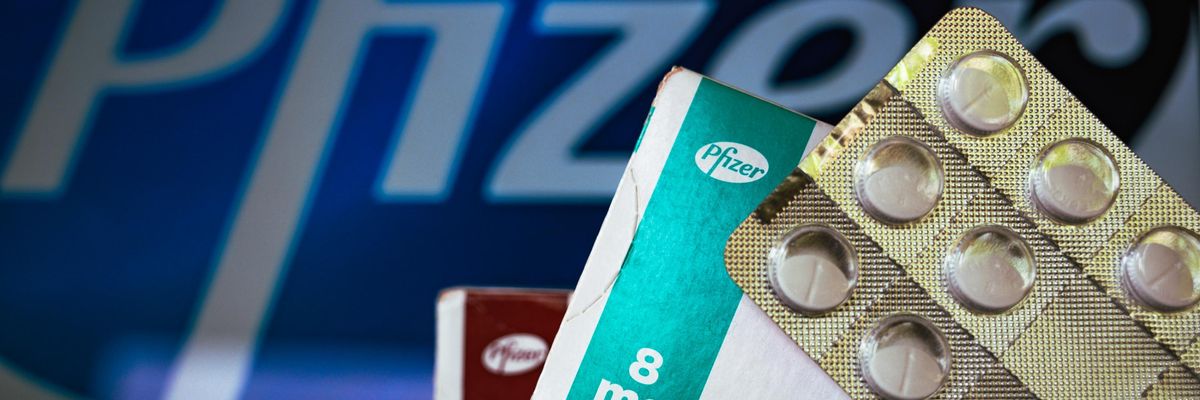While public health officials in the U.S. on Wednesday applauded the Food and Drug Administration's authorization of Paxlovid, Pfizer's pill to combat the worst effects of Covid-19, experts warned the limited worldwide availability of the drug would give way to a new layer of inequality--condemning billions of people in low- and middle-income countries to more severe and possibly deadly illness.
"If Pfizer is really interested in ensuring global access to this treatment, it should make clear that it will not stand in the way of generic production and competition anywhere."
The FDA approved the drug for the treatment of early Covid-19 infections. Adults and children over the age of 12 who have tested positive for the disease will be able to get a prescription for the drug if they face a high risk of hospitalization.
The Biden administration says it will purchase enough of the drug to treat 10 million people in the U.S., and President Joe Biden said the authorization marks a "significant step forward in our path out of the pandemic."
Pfizer also has agreements with the U.K., Australia, and other wealthy nations to produce 80 million courses of the treatment next year, according to the Associated Press.
But advocates for public health equity warned that billions of people around the world will have no access to the treatment, and that it won't reach countries that are slated to get supplies of the drug until late 2022.
"This will be Covid global medical apartheid part two; extreme global inequity following similar patterns to vaccines," said Peter Maybarduk, Access to Medicines director at Public Citizen. "Have we learned anything?"
As Common Dreams reported last month, Pfizer announced a licensing deal that will allow generic drug companies in 95 countries to produce the drug, offering Paxlovid to about 53% of the world's population--but leaving out many hard-hit countries such as Brazil and Turkey and developing countries including Lebanon and Iraq.
According to Maybarduk, "It will take six to 12 months for generic availability."
"If governments cooperate, we can accelerate," he added. "We also need solutions for middle-income countries not included in the license."
In countries with low vaccination rates--including nearly every African country and war-torn Yemen and Afghanistan--access to medicines like Paxlovid is "critical," said Doctors Without Borders (MSF).
"However, as with Covid-19 vaccines, high-income countries are tying up the available supply of nirmatrelvir/ritonavir [Paxlovid] through advance purchase agreements with Pfizer and leaving limited-to-no supply available in the near-term for low- and middle-income countries," said the group. "As generic production of nirmatrelvir/ritonavir is only anticipated by the middle of next year, access for low- and middle-income countries is precarious."
MSF called on world governments not to grant patents for the combination drug "so generic companies can produce it without waiting for Pfizer's permission."
"Countries should stand firm and refuse to grant any patents on nirmatrelvir/ritonavir, while generic companies should start preparing to produce the medicine," said Mihir Mankad, senior global health advocacy and policy adviser for the group.
Mankad added the authorization of Paxlovid offers another argument for a waiver of the World Trade Organization Agreement on Trade-related Intellectual Property Rights (TRIPS), which would suspend patents on pandemic-related treatments and vaccines and allow generic versions to be created all over the world--a step that public health experts say would reduce mutations and new variants of the disease, like the rapidly-spreading Omicron variant.
"If Pfizer is really interested in ensuring global access to this treatment," said Mankad, "it should make clear that it will not stand in the way of generic production and competition anywhere, and refrain from imposing intellectual property barriers everywhere for the duration of [the] pandemic."
